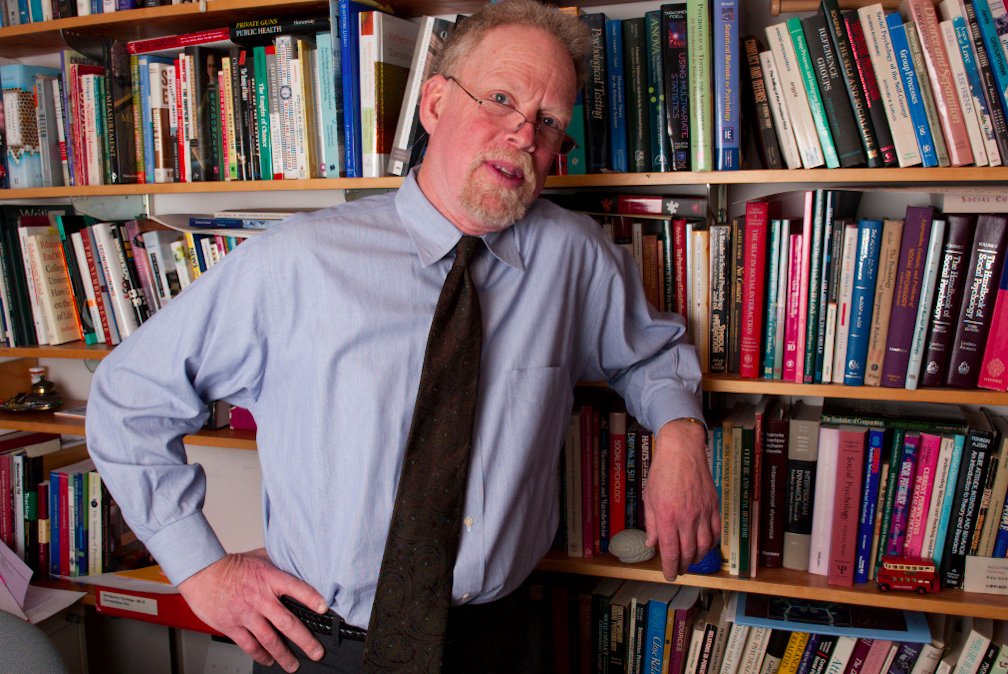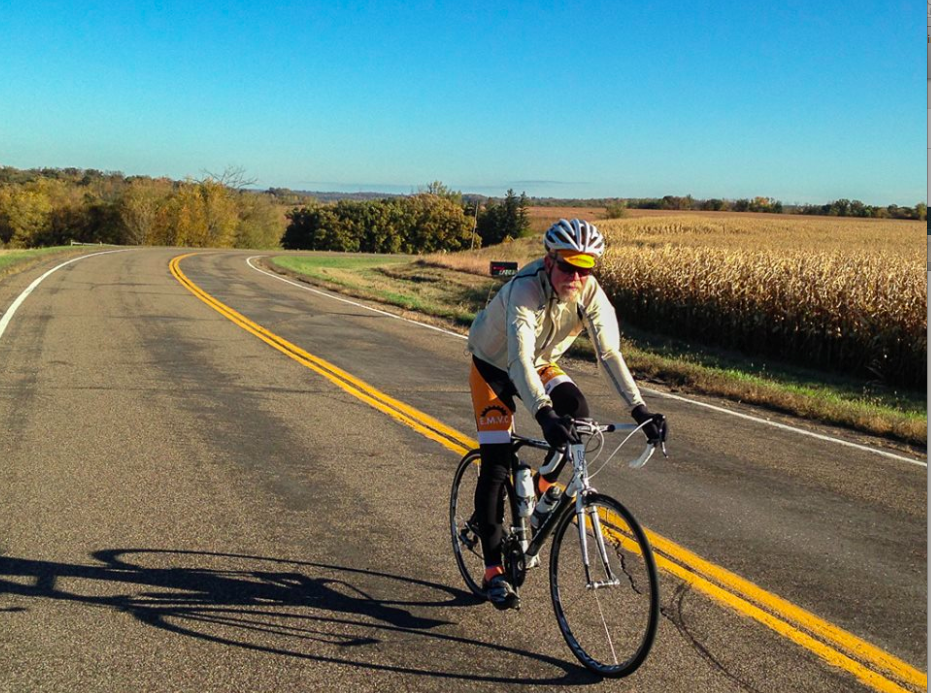 School name: Carleton College
School name: Carleton College
Type of college/university: Liberal Arts College
School locale:
Small town (pop. = 20,007) in a rural area in close proximity to a major metropolitan area (Minneapolis/St. Paul, Minnesota).
Courses I teach:
Introductory Psychology, Social Psychology, Laboratory in Social Psychology, Personality, Laboratory in Personality, Psychology of Endings, Positive Psychology, First Year Interdisciplinary Seminar on Quantitative Reasoning called “Measured Thinking”.
What’s the best advice about teaching you’ve ever received?
Reading is the source of the most memorable prods about teaching I’ve encountered. Here are two. The artist Josef Albers observed “Good teaching is more a giving of right questions than a giving of right answers” (Interaction of Color). In Avatars of the Word: From Papyrus to Cyberspace, the classicist James O’Donnell wrote “…we teachers do not automatically deserve a future. We must earn it by the skill with which we disorient our students, energize them, and inculcate in them a taste for the hard disciplines of seeing and thinking.” Quite the challenge.
What book or article has shaped your work as a psychology teacher?
Peter Gray’s “Engaging Students’ Intellects”, published in Teaching of Psychology, 1993, 20(2), 68-74. I first heard him talk on the topic at the National Institute on the Teaching of Psychology in 1992, and I thought he captured sharply my more muddled and evolving philosophy of teaching. It was thrilling to hear, and I recommend his article highly.
Tell us about your favorite lecture topic or course to teach.
There isn’t a course I teach that I don’t love teaching, and there are important, challenging, exciting ideas and findings in all of them. I suppose if I could only teach one, it would be my Measured Thinking course on quantitative reasoning. Although not in content a psychology course, Measured Thinking embodies the methodological values and insights of psychological science. If I were forced to choose one topic, it would have to be the Milgram “obedience” experiment, which I take to be much less about obedience than about the challenges of navigating social-situational influences on behavior.
Describe a favorite in-class activity or assignment.
I enjoy conducting demonstrations of “telepathic” abilities but nothing equals the sheer terror of staking your own financial health on strategic interaction games or class lotteries (see, e.g., Larson, Teaching of Psychology, 1987, 14(4), 230-231). However, what I value most in class are those times discussions I’ve structured to have a high probability of generating “Aha” moments when students understand or apply ideas in a newly insightful way actually succeed. For example, in my social psychology course after we discuss students’ personal experiences conducting social norm violations, we then consider what social life must be like for someone whose attributes or status may be taken to violate social norms on an ongoing basis. In my personality course students view psychoanalysis in a different light after I ask them to apply psychoanalytic thinking to understanding emotional reactions to relationship break-ups.
What teaching and learning techniques work best for you?
Lecturing! My style is rather old school, not surprising given that I’ve been teaching for 40+ years. I have found that a well-constructed presentation, one that invites student attention and participation and that does something meaningful or challenging with material, stimulates active learning. I strive to cultivate students’ thoughtful listening, intellectual excitement, and disciplined engagement.
What’s your workspace like?
Flooded with books, papers, notebooks, posters and plaques, odd paperweights, vintage pens, and mementos of cycling trips, family, and former students, but open to views of campus trees and Carleton’s historic Goodsell Observatory.
Three words that best describe your teaching style.
Serious, challenging, playful.
What is your teaching philosophy in 8 words or fewer? (OK, Eight big words!)
Encourage informed and responsible thinking, the critical use of evidence, and a love of learning.
Tell us about a teaching disaster (or embarrassment) you’ve had.
What’s more meaningful to me than an embarrassment is a teaching disappointment, which I experience often. It occurs when I am excited about the material, have invested heavily preparing a class, can’t wait to try something out, and find that the session flops. I don’t perseverate about embarrassments; I’m haunted by teaching failures.

What is something your students would be surprised to learn about you?
Do students recognize how much skin I have in each and every class? I’m not sure. As for the “me” outside of work, students soon learn about my passion for cycling, a bit about family origins (e.g., the fact that my grandmother couldn’t read or write, or that my daughter failed the water-level task), and my interest in vintage fountain pens (which mark and sometimes stain their papers). It’s still startling to me that I once won a blue ribbon at the Minnesota State Fair for my sour cherry-rhubarb-blueberry jam. I suppose that might surprise students as well.
What are you currently reading for pleasure?
Certainly not the computer screen on which I type this. I just finished Aili and Andres McConnon’s Road to Valor, about the cyclist Gino Bartali, who won the Tour de France before and after World War II and worked courageously during the war on behalf of Italian Jews in Italy. Starting to read Scarcity by Sendhil Mullainathan and Eldar Shafir, a popular contribution to behavioral economics and cognitive psychology.
What tech tool could you not live without?
My career offers a pre and post-test of work in academia relying on the everyday use of the Internet and the World Wide Web it supports. I treasure the nearly instant access to information we have, our ability to satisfy curiosities so richly, and the opportunity to share what I learn through teaching.
What’s your hallway chatter like? What do you talk to colleagues about most (whether or not it is related to teaching/school)?
Minnesota weather, beer, classes and teaching, travel plans, family.
